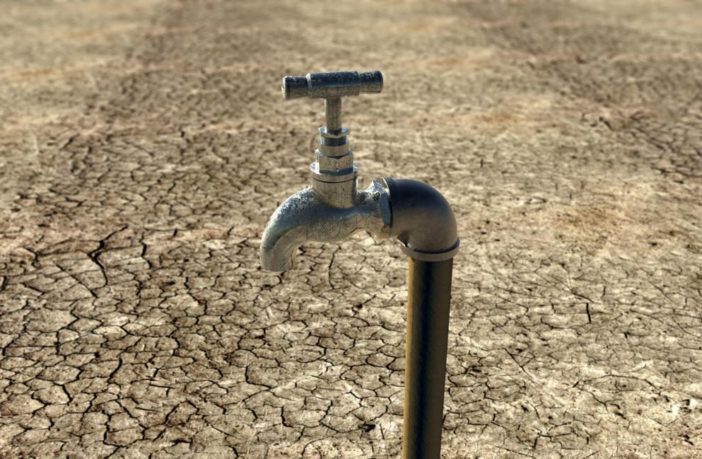The Democratic Alliance, the elected party in control of the Cape Metropole, called a press conference last week to announce that Day Zero was ‘possibly’ not going to happen this year. In an unprecedented show of force, the leader of the DA, Mmusi Maimane, along with the Premier, Helen Zille front lined the press briefing with the Deputy Mayor, Ian Nielson.
Maimane: “I am therefore happy to announce today that provided we continue consuming water at current levels, and we receive decent winter rainfall this year, Day Zero will not occur in 2018. This means the taps will stay open in 2018!”
At the very same press briefing, the Deputy Mayor, Ian Nielson ironically announced that the City’s dashboard for the previous week showed a slight increase in water consumption and at the same time, dam levels dropped slightly. Consumption as at March 5 stood at 537 million litres per day, up from 516 the previous week and dam levels dropped by 0.4% to 23.6% for the same period.
So what changed in the previous week? We note that not much changed regarding the water status in Cape Town which, if anything, got slightly worse. We also note that a national voter registration weekend was held this past weekend – 10 and 11 March 2018. South Africa has national elections coming up next year in 2019.
To announce that Day Zero is not going to happen without any major improvement in the water status quo in Cape Town underlines how politicised the supply of water is in South Africa and more importantly, how the problem is going to be used as a political football in the upcoming elections.
Like energy, water is centrally controlled in South Africa. The country’s ruling party, the ANC, controls water production and supply at national level, while the DA government controls supply and distribution at local level in Cape Town. To make matters worse, both organisations are factionalised internally. The local DA mayor, Patricia De Lille, is battling a vote of no confidence from within her party while the ruling ANC party has just come through a bruising electoral conference where Cyril Ramaphosa marginally defeated Nkosazana Dlamini-Zuma to lead the ANC.
National government has taken a hard line. Cape Town has to reach a reduced daily consumption target of 450 million litres of water a day to fall in line with the Department of Water and Sanitation’s allocation, which significantly reduced what the city is allowed to extract from dams in the region. This means that each person must use less than 50 litres of water a day.
While the politicians play political high ball, a simple back of the envelope calculation will tell you that day zero is still very much a reality in 2018 – if good rains do not come. Here is what the City has in place regarding augmentation for immediate relief over the next few months (daily output):
- Monwabisi desalination plant: 7 million litres
- Strandfontein desalination plant: 7 million litres
- The V&A Waterfront’s temporary desalination plant : 2 million litres
- The total expected yield from aquifers: 83 million litres
- The Zandvliet water recycling treatment plant: 10 million litres
- A number of high yielding springs: One and two million litres
Maximum total daily production: 111 million litres (roughly 20% of total daily consumption required)
Last month, farmers from the Elgin region started pumping roughly 10 million cubic meters of water from their dams to the Steenbras Dam, one of the major dams that service the Cape Metropole. This relief will not be ongoing and will stop once they run out of surplus water. We must also take into account that the City has throttled water to three agricultural irrigation boards.
The trigger point for declaring Day Zero remains when the average dam levels reach 13.5%.
On the face of it, the DA government appear to be taking a massive gamble on rain. The South African Weather Service has reported that the winter rains forecast for May, June and July do indicate above normal rainfall for the south-western parts of the country however; climate change has proven that traditional weather forecasting methods cannot be relied upon. The South African Weather Service got the same prediction wrong this time last year.
The high stakes gamble on rain seems largely self-centred by the Democratic Alliance. There were enough warning signs over the last five years and they could have done so much more for the people regarding augmentation measures. If the rains don’t come, Day Zero will come and the people of Cape Town are going to be very angry.
It is crazy to think that climate change can tip the balance of power in a province or even a country. It is even crazier to think that rain will ensure votes.
Author: Bryan Groenendaal















